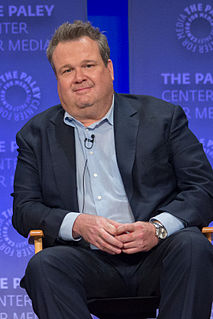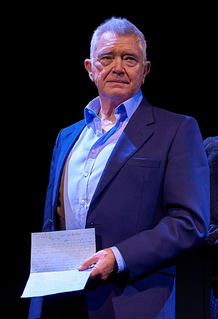A Quote by Piper Kerman
I went back to work right away [after prison]. I was very lucky — a friend of mine created a job for me at his company. Most prisoners who come home face really significant challenges when it comes to finding work. It’s very, very hard for most people who have a criminal record to get a job. I think the system is very wasteful of taxpayers’ dollars. It’s also very wasteful of human potential. I found that most people whom I was locked up with were, you know, good people who have skills and value. Prison is a missed opportunity to nurture those things.
Quote Topics
After
Also
Away
Back
Back To Work
Challenges
Come
Company
Created
Dollars
Face
Finding
Found
Friend
Get
Good
Good People
Hard
His
Home
Human
Human Potential
Job
Know
Locked
Locked Up
Lucky
Me
Mine
Missed
Missed Opportunity
Most
Nurture
Opportunity
People
Potential
Prison
Prisoners
Really
Record
Right
Right Away
Significant
Skills
System
Taxpayers
Things
Think
Those
Up
Value
Very
Wasteful
Were
Whom
Work
Related Quotes
The problem of giving health care to everybody cannot be solved so long as we're spending huge sums of money for war. Already we have a very wasteful healthcare system, the most wasteful healthcare system in the world. I mean, we spend the most money and still have 40 million people without insurance. Compare us to Cuba. Cuba is our enemy, run by a dictator, Fidel Castro. But people in Cuba get health care at least equal to that of the United States - with very scarce resources. So I think this issue is the most important domestic issue.
I think it's important to visit people in prison. And if you know anyone in prison, I would encourage you very much to visit them. They're a good audience! I always get good letters from prisoners. I don't usually answer them because I have a lot going on in my life, but I get some really good ones, I get some really good letters from prison.
Sadly most films only get exposure if they win an award or were in a festival, which is really difficult because those things cost money! Submitting your film to a festival or campaigning for an Oscar or a Golden Globe is very expensive. Most people don't know that, but all those events require a lot of money. If you have a small independent film, it's very hard to get the attention of people in those circles.
I think it's critically important for people to understand that this system of mass incarceration governs not just those who find themselves in prison on any given day, but also all those who are in jail, on probation or parole, as well as all those who are just months away from being locked up again because they are unable to find work or housing due to their criminal record.
Some of the folks we see are in for defending themselves against their abusers, or drug charges that, because of the California state prison system, they have mandatory sentencing and life in prison for three counts of simple drug possession, or whatever. I find it not only helpful but, I think, necessary in maintaining my grounding and my perspective. Because music is such an unrealistic job to have. It's a really lucky job to have, but it's also very unrealistic.
There are several dozen political prisoners in Russia. When I cite that number people are often very surprised. They often think there are more. Well - there are hundreds of thousands of people who haven't had a fair trial, who are victims of the political system. But in the Amnesty International sense of the word, most of them are not political prisoners because they are not going to prison for protesting.
Khodorkovsky is richest man. And he lost everything when Putin arrested him and took his company away, and essentially took his company away, sold it, and gave it to other people, and enriched them. So, he's a complicated figure as an opposition leader, and people admire him - he was in prison, and he was very brave, and he's written some good things since then, and so on. But at the end of the day, people see him as being part of the corrupt system that has done so much to undermine the Russian system since the 1990s, and I don't know that he can ever be a really popular leader.
People are most shocked and most in disbelief that I go to the office every day. I have a job. When I'm not acting on a movie, I go to work, first thing in the morning. I'm at work at 8 o'clock in the morning, and I get home from work at 7 o'clock at night. I treat my job like a job, and I work at it. I think people would probably be most surprised, if I ever calculated up the number of hours I work on an average week and published that. If it was ever documented, I think people would be shocked to find out.
I was so lucky because I started working very young. And my father was very wealthy and I didn't need to work. I did my films. I was very well paid for my age, and I could make choices, decide not to do a film for six months and wait until I'd get the right thing. Which made me quite a coward, you know. It's so easy to say no to stuff, and then, after a while, it's very hard to go back in.
What people generally tell you is, "We'll all agree," and then once you sign, they expect to get their own way. I think it was a bit of a surprise that I was still very headstrong even after signing. I wasn't so happy to get a deal that I would agree to anything. In fact, I disagreed on most things and got my way on most things, which I think was to all of our benefit. But they wanted the record to come out, and I wanted the record to come out, so we had to work together.



































